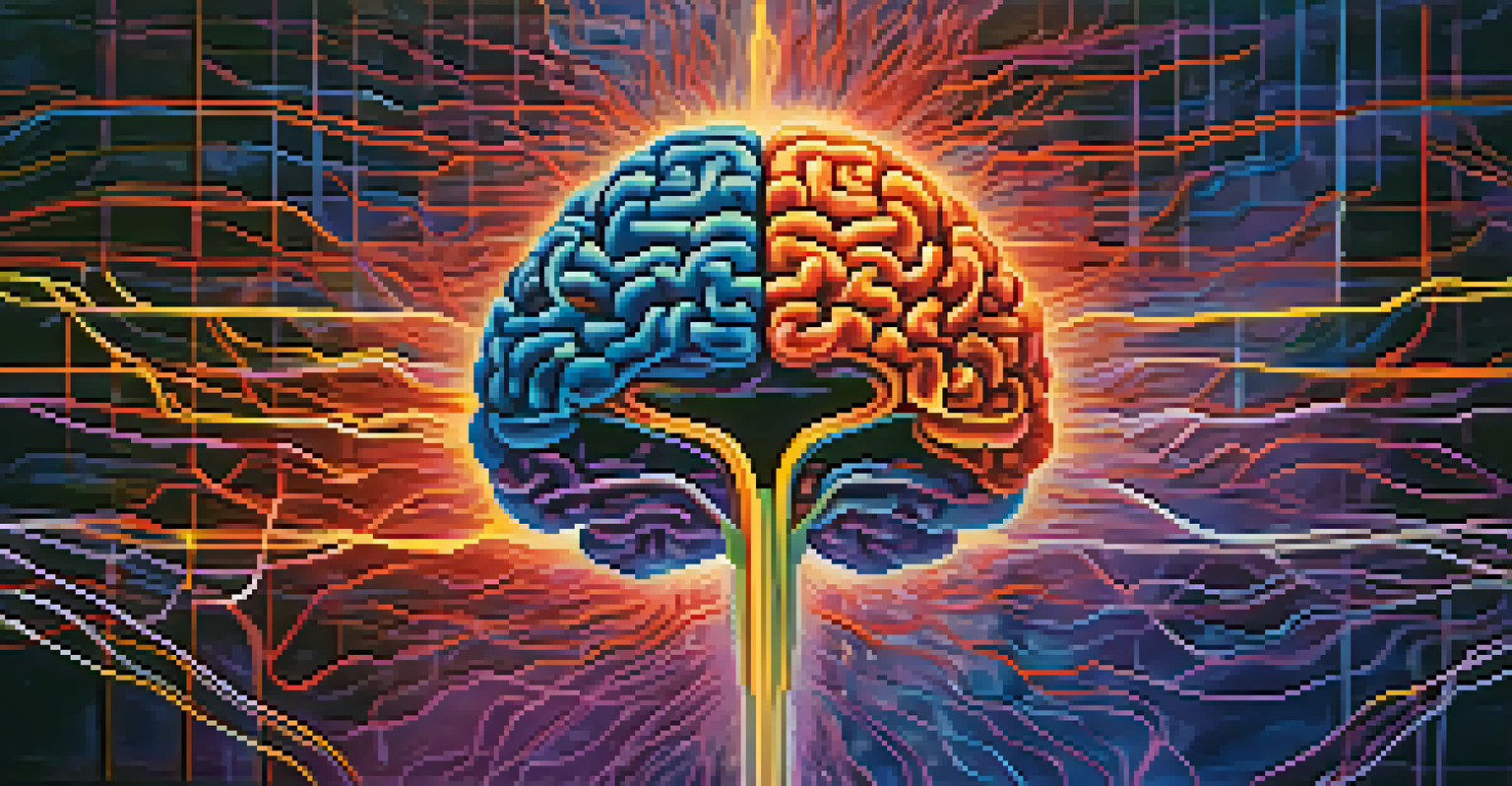Entheogens as Tools for Political Awakening and Change

Understanding Entheogens: More Than Just Substances
Entheogens are substances, often derived from plants, that have been traditionally used to induce altered states of consciousness. These experiences can lead to profound insights and personal revelations. Unlike recreational drugs, entheogens are often used in spiritual or ceremonial contexts, aiming to deepen understanding and connection to the self and the universe.
The mind is everything. What you think you become.
Throughout history, various cultures have utilized entheogens for healing, divination, and community bonding. The term itself comes from the Greek words 'entheos,' meaning 'full of the divine,' and 'genesis,' meaning 'to generate.' This indicates that these substances are not just tools for escapism, but rather vehicles for enhanced perception and awareness.
As society grapples with numerous political and social issues, the potential of entheogens as facilitators of awakening becomes increasingly relevant. They can inspire individuals to question the status quo, leading to a deeper understanding of systemic issues and motivating action for change.
Historical Context: Entheogens in Political Movements
Throughout history, entheogens have played a pivotal role in various political and social movements. For instance, the civil rights movement in the United States saw many activists exploring altered states of consciousness to gain clarity and purpose. Figures like Martin Luther King Jr. emphasized the importance of inner awakening, resonating with the transformative experiences that entheogens can provide.

Similarly, the counterculture of the 1960s embraced substances like LSD and psilocybin mushrooms, viewing them as tools for expanding consciousness and promoting social change. This era was marked by a surge in activism against war, inequality, and injustice, demonstrating how altered perspectives can fuel passion for social good.
Entheogens Foster Political Awareness
These substances can facilitate deeper understanding and inspire individuals to question societal norms, promoting political engagement.
These historical examples highlight the potential of entheogens to cultivate a sense of urgency and moral clarity among individuals. By fostering deeper connections to oneself and society, these substances can inspire collective action and political engagement.
The Science Behind Entheogens and Consciousness Expansion
Research has shown that entheogens can significantly alter brain chemistry and connectivity, leading to enhanced creativity and problem-solving abilities. For example, psychedelics like psilocybin have been found to encourage new neural pathways, allowing individuals to think outside conventional frameworks. This shift in thinking can empower people to envision innovative solutions to societal challenges.
We are not human beings having a spiritual experience; we are spiritual beings having a human experience.
Moreover, studies suggest that entheogens can lead to increased feelings of empathy and connection to others. These experiences can break down barriers, making individuals more receptive to diverse perspectives and experiences. In a politically divided world, fostering empathy is a crucial step towards understanding and collaboration.
Ultimately, the science behind entheogens supports their potential as tools for political awakening. By expanding consciousness and enhancing empathy, these substances can inspire individuals to take action toward meaningful change in their communities.
Case Studies: Successful Activism and Entheogens
Several modern movements have embraced entheogens as part of their activism strategy. For example, the Indigenous rights movement often incorporates traditional plant medicines into their efforts to reclaim land and culture. These practices not only empower individuals but also serve as a reminder of the deep-rooted connections between spirituality and political action.
Another notable example is the environmental movement, where many activists utilize entheogens to gain insights into humanity's relationship with nature. These experiences can foster a profound sense of stewardship for the planet, motivating individuals to engage in activism that prioritizes ecological health.
Community Enhances Entheogenic Experiences
Shared exploration of entheogens creates a supportive environment that amplifies personal insights and motivates collective action.
These case studies illustrate that when individuals tap into their inner consciousness, they often emerge with a renewed sense of purpose. This transformation can catalyze collective action, driving movements that challenge existing power structures and advocate for a more just world.
Challenges and Risks of Using Entheogens for Awakening
While entheogens hold great potential for political awakening, they are not without their risks. Misuse or lack of understanding can lead to adverse experiences, which may deter individuals from engaging with these substances in a meaningful way. It's crucial for users to approach entheogens with respect, understanding, and proper guidance.
Additionally, the legal status of many entheogens remains a significant barrier. In many regions, these substances are classified as illegal, limiting access for those who could benefit from their insights. Advocacy for policy reform is essential to ensure safe and responsible use, allowing more people to explore their potential for political and personal growth.
Navigating these challenges requires a balanced approach that emphasizes education, community support, and harm reduction. By fostering safe environments for exploration, individuals can more effectively harness the power of entheogens for awakening and activism.
The Role of Community in Entheogenic Experiences
Community plays a vital role in the journey of individuals exploring entheogens. Shared experiences can enhance the understanding of personal insights, creating a supportive environment for discussion and reflection. This communal aspect can be especially important when navigating the complexities of political awakening and activism.
Ceremonies and group settings provide a framework for individuals to process their experiences collectively. This not only fosters a sense of belonging but also encourages participants to work together toward common goals. The synergy that emerges from these shared experiences can amplify the impact of individual awakenings, leading to collective movements for change.
Growing Acceptance of Entheogens
As attitudes shift, entheogens are increasingly recognized as valuable tools for activism and therapeutic healing, paving the way for social change.
Ultimately, the power of community cannot be underestimated in the context of entheogenic exploration. It serves as a catalyst for deeper understanding and motivates individuals to take action together, reinforcing the idea that political change is most effective when pursued collectively.
Looking Ahead: The Future of Entheogens in Activism
As societal attitudes toward entheogens continue to shift, there is growing potential for their incorporation into activism. With more research emerging on the benefits of these substances, activists are beginning to advocate for their acceptance and use as tools for social change. This shift could lead to a broader understanding of how altered states of consciousness can inspire political engagement.
Moreover, as conversations around mental health and well-being evolve, entheogens may find a place in therapeutic settings, helping individuals process trauma and gain clarity. This healing aspect can further empower participants to engage in activism, as they address personal and collective wounds.

The future of entheogens in activism looks promising, with the potential to create a more conscious and engaged citizenry. By embracing these tools, we can cultivate a society that values empathy, understanding, and collective action, ultimately fostering a more equitable and just world.